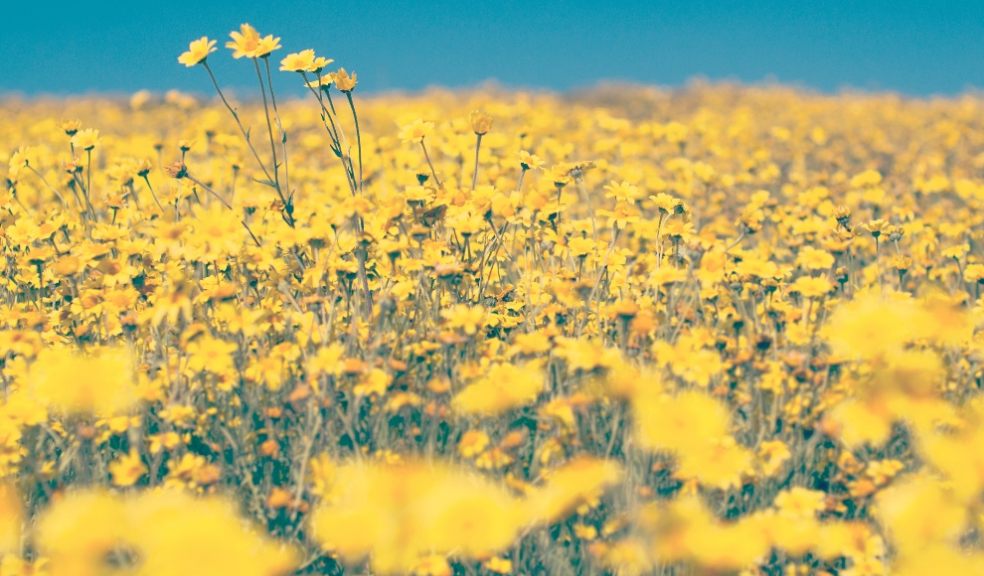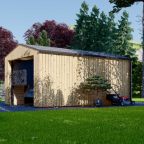
Ban the home garden - houses should only come with wild meadows and veg patches
Have a look at your back garden, what do you see - is it mostly covered over with an artificial lawn, a patio, or sad looking grass? And out the front – it’s been concreted over for a car.
Then, according to one waste and recycling company, your garden could be part of the reason why the UK is suffering a biodiversity crisis, as we have lost 97% of our wildflower meadows since the 1930s.
BusinessWaste.co.uk are calling for new properties to be built without gardens and only with wild meadows or fruit and veg patches for families to ‘grow their own’, in a bid to get nature thriving again.
“As a nation, we’ve completely lost touch with nature,” says Mark Hall who is spear-heading the green campaign.
“But now it’s time to sow the seeds for our future and give back to the planet by restoring our green spaces and letting nature blossom again.”
We have to DESERVE our gardens, says BusinessWaste.co.uk
FACT: Astro-turf is killing off diversity in the British garden
Biodiversity is the variety of species living within a space, and each natural eco-system depends on it to continue to grow and thrive.
However, upset that balance and the biodiversity will suffer, leading to eco-systems collapsing because of fewer habitats for important wildlife such as pollinators, birds and hedgehogs.
So what do our gardens have to do with this?
Private gardens in the UK are estimated to cover around 10 million acres, more space than all of the country’s nature reserves combined.
Each garden is a mini eco-system within itself, and the more we allow nature to take its course, the more we can allow the space, and the planet, to flourish.
However, the trend of having a luscious garden is vanishing, with social media influencers ripping up their gardens in favour of astroturf in order to make them look immaculate and easier to maintain.
But astroturf doesn’t provide any of the natural benefits of good old-fashioned real grass, such as absorbing rain, providing a habitat for insects, and feeding wildlife such as birds.
Hence the biodiversity of these gardens is suffering – big time.
Hall: “We are calling for all new-builds to come with green spaces that can become wildlife havens, such as wildflower meadows bursting with native plants, and allotment spaces for people to get back in touch with nature and grow their own produce.
“By rejuvenating our back gardens, we can increase the numbers of insects and wildlife, which will breed new life back into the environment.”
Get wild about rewilding
Part of BusinessWaste.co.uk’s green garden campaign is a plea for people to rewild their current gardens, in order to do away with useless ‘green’ spaces that are killing our eco-system.
Hall: “If we can stop more rubbish gardens being built, and change the way people view their current gardens, then we will have a much better chance of preventing further decline in our biodiversity.”
This is where the notion of rewilding comes into play.
Rewilding is exactly what it says on the tin, taking an area of land and restoring it back to its natural wild state – whether that be a beautiful meadow or a bustling hedgerow.
And it’s really quite simple to turn your back garden back into a buzzing hive of activity and make it more wildlife friendly.
Hall: “You could start by taking it easy with mowing the lawn, let it grow out in some areas to encourage more plant species such as clovers and dandelions to grow – which in turn will provide more food for those all-important pollinators.”
Hall also suggests including features such as log piles and bug hotels to give insects some much-needed shelter to help increase their numbers.
Perhaps the easiest thing you can do is try to encourage birds into your garden, by putting up bird feeders and bird baths to help our native bird populations.
For the more green-fingered homeowners, why not convert some space in your garden into your own mini-allotment and try your hand at growing your own fruits and veggies.
Hall: “Get the whole family involved in growing food in your back garden, it’ll be a fun way to teach children where their food comes from and the importance of looking after the earth.
“Plus you’ll soon you’ll be overwhelmed with plenty of tasty treats













